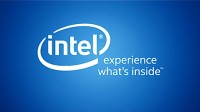Intel Has Record Quarter and Year Despite Supply Shortages
January 28, 2022
California-based Intel, the world’s largest semiconductor manufacturer, reports Q4 2021 set a record and capped the company’s best year ever despite the dire worldwide shortage of processing chips. Q4 revenue was up 3 percent, to $20.5 billion, while the year totaled $79 billion, a 1 percent gain. However, Q4 net income declined 21 percent year-over-year, to $4.6 billion, and fell 5 percent (to $19.9 billion) for the 12-month period. Intel CEO Pat Gelsinger called it “a great finish to a great year,” besting top-line quarterly guidance by over $1 billion to deliver “the best quarterly and full-year revenue in the company’s history.”
But growth wasn’t as robust as it could have been, because although Intel fabricates its own processors, as The Verge put it, “you can’t make a laptop with Intel chips alone.” Intel’s laptop revenue “was down 16 percent year over year because it can’t ship nearly as many of them as it likes, even though it’s likely making more money from each one: the average selling price of those laptop components went up 14 percent.”

While delivering Intel’s Q3 results Gelsinger cautioned about other supply chain shortages constraining the company’s growth.
Sales of desktop chips are up, though, with many of the company’s other divisions picking up some slack. Intel’s Data Center Group posted a 20 percent gain, year-over-year, to $7.3 billion, while the Internet of Things Group (IOTG) and self-driving car division Mobileye also posted increases, up 36 percent and 7 percent for Q4 2021 compared to the same period the prior year, and up 33 percent and 43 percent, respectively, for the year.
In the fall, Gelsinger suggested that the chip shortage could stretch into 2023, bad timing since “the PC’s experiencing a bit of a renaissance right now,” writes The Verge, citing Gartner and IDC reports indicating “sales grew an additional 10-15 percent in 2021, with over 340 million PCs shipped” and analysts reporting even more could have sold if not for the shortage.
“Shortages in substrates, components and foundry silicon has limited our customers’ ability to ship and finish systems across the industry,” Gelsinger said on the company’s earnings call. “This was most acutely felt in the client market, particularly in notebooks, but constraints have widely impacted other markets, including automotive, the Internet of Things, and the data center.”
Worthwhile new initiatives include Intel’s own discrete Intel Arc graphics processors, and The Verge writes “the Intel Arc Alchemist is looking like a dark horse candidate to shake up the GPU market in both desktops and laptops later this year.”
Intel “is in a period of transition after falling behind rivals in chip making, and competitors have taken market share from it in some semiconductor categories,” The Wall Street Journal writes. Gelsinger, named CEO in February 2021, has been working to reposition the company as a fabricator of chips designed by others, with tens of billions of dollars committed to new plant construction, but “said in December that his turnaround plans could take five-plus years.”
Related:
EU Court Throws Out $1.2 Billion Antitrust Fine Against Intel, The New York Times, 1/26/22

No Comments Yet
You can be the first to comment!
Sorry, comments for this entry are closed at this time.